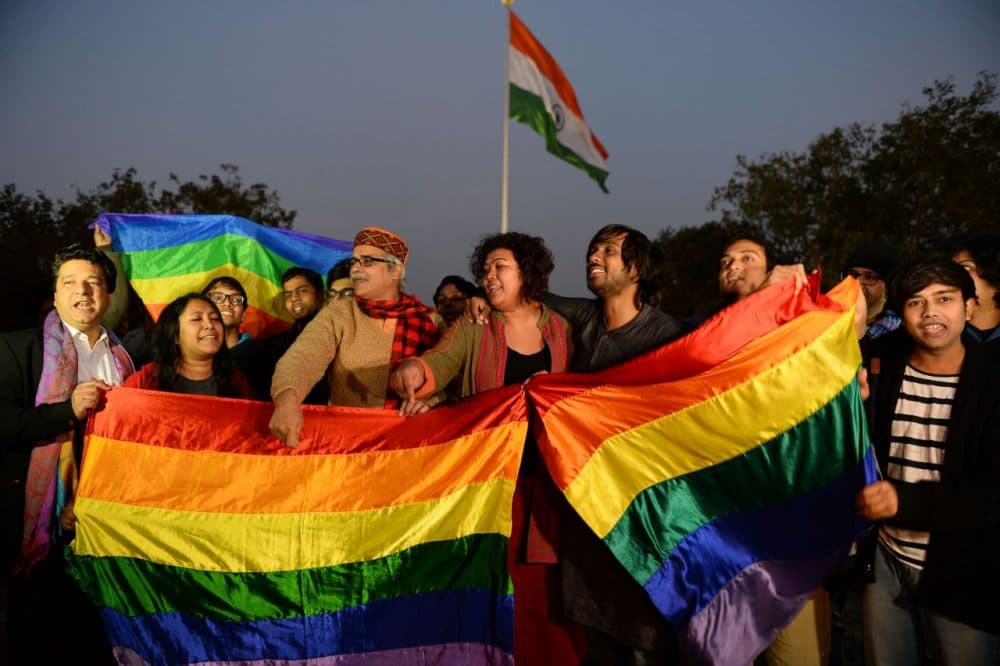Advertisement
Indian Court Reopens Gay Sex Case
Resume
India's top court this week set up a five-judge panel to reconsider its 2013 ruling that only India's parliament can change the 1861 law criminalizing gay sex.
Gay activists cheered the decision and said they were hopeful the verdict would ultimately go in their favor and they would have the chance to live openly.
Here & Now's Jeremy Hobson speaks with Rahul Tandon, the BBC correspondent in Kolkata (formerly Calcutta), about how the reopening of the case is resonating.
Note: This BBC interview can be heard in the Here & Now podcast or with the WBUR app.
Guest
- Rahul Tandon, correspondent for the BBC. He tweets @rishavtandon.
This segment aired on February 3, 2016.